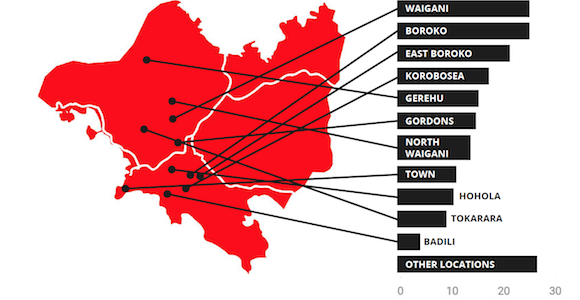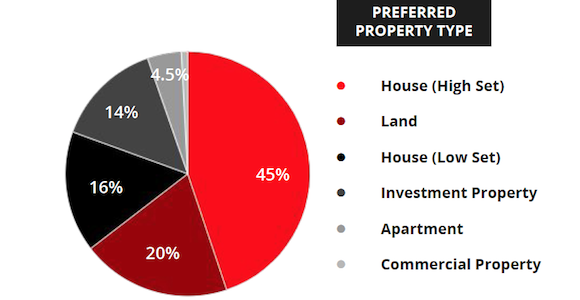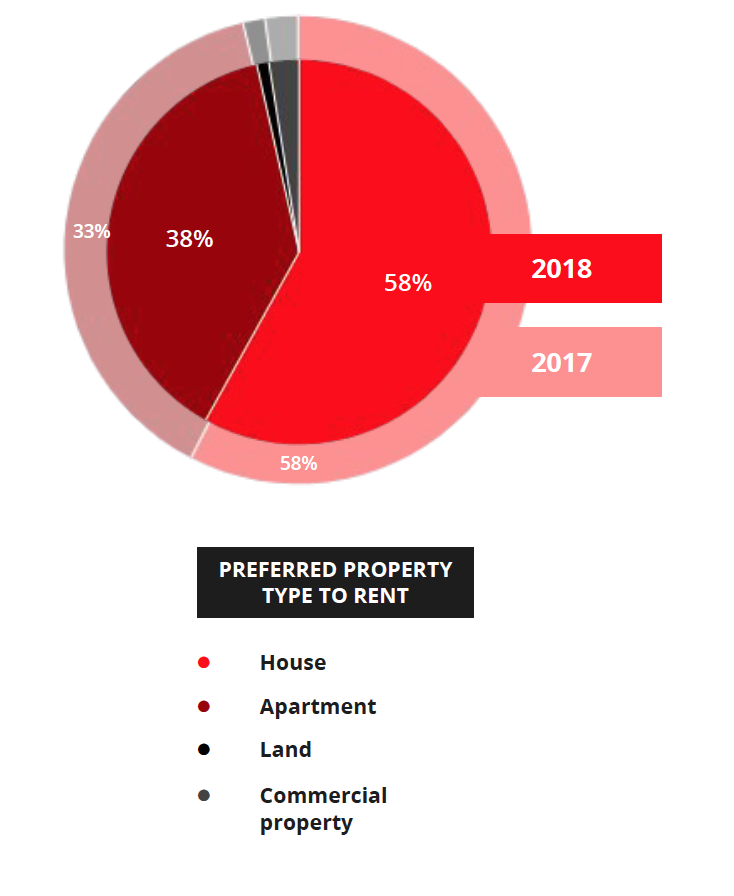Hausples.com.pg has released its Real Estate Survey 2018, which shows that the biggest challenge for the property market is supply side factors such as land titles, infrastructure and private sector investment. But it says these issues ‘are slowly being addressed’ and that there is ‘unequivocal market demand’ for housing at various price points.

Preferred suburbs in Port Moresby Source: Hausples
The survey found that perceived unaffordability has increased since 2017, with 87 per cent of respondents believing that purchasing a property in PNG is either ‘moderately or very unaffordable’ (compared with 85 per cent in 2017).
The percentage who believe buying a home is ‘affordable, through to very affordable’ also decreased from 14 per cent to 12 per cent.
‘The APEC Forum has certainly increased the costs of goods and labour.’
‘Attributing this shift is difficult,’ the report says. ‘Increasing urbanization is certainly one contributing factor.
‘The APEC Forum has increased the costs of goods and labour in the run-up to the event and this is likely to have had a flow-on effect for the construction and housing markets.’

Preferred property type Source: Hausples
Positive outlook
The report found that respondents had a positive outlook towards the house sales market in PNG.
It says two thirds believe that prices have increased over the last 12 months and 61 per cent believe that prices will continue to increase this year.
‘The majority of people believe that now is the best time to purchase a home, however this decreased slightly from 61 per cent in 2017, to 56 per cent in 2018.
‘Almost 23 per cent of respondents indicated that they intend to buy a home in the next 12 months.
‘However, this is a large shift from the 2017 survey in which 39 per cent of people indicated an intention to purchase within 12 months.
‘The survey says low affordability—price was the standout factor in purchasing—constrained supply of houses.’
‘People’s purchasing horizon has now shifted from 6–12 months to a longer time horizon of 12–18 months. These results indicate strong underlying demand to purchase housing, however this is tempered by a medium term ability to purchase.’
The survey says low affordability—price was the standout factor in purchasing—constrained supply of houses.
A complex title approval process and a limited construction work force were also limiting factors.
‘Despite the vast majority of people still requiring a loan for their property purchase (82 per cent), more than 98 per cent of people expect to contribute a deposit of 10 per cent or more toward a home purchase.
‘These results indicate that financial literacy has further improved since the last survey.’
Rental market
The number of respondents considering renting in the next 6 months fell from 45 per cent to 40 per cent.
‘Respondents preferred to reside in Waigani.’
‘About 22 per cent will consider renting in less than 2 months, 12 per cent in 2-4 months and 11 per cent in 4-6 months.
‘Meanwhile, confidence in the rental market has remained consistent with 2017; with 25 per cent of the respondents stating that now is a better time to continue renting a home.’
The report says there is a ‘relative lack of quality affordable rentals compared with last year.’
The survey found that respondents preferred to reside in Waigani (25 per cent) and Boroko (25 per cent), ‘with East Boroko (21 per cent) and Korobosea (16 per cent) not far behind.
Half of respondents indicated they would prefer to spend less than K500 per week, similar to the previous year’s results.
‘Price is once again the leading factor people consider when renting a home (53.3 per cent), followed by security (31 per cent) and proximity to public transport. These results are similar to 2017.’

Rental preferences Source: Hausples








Speak Your Mind